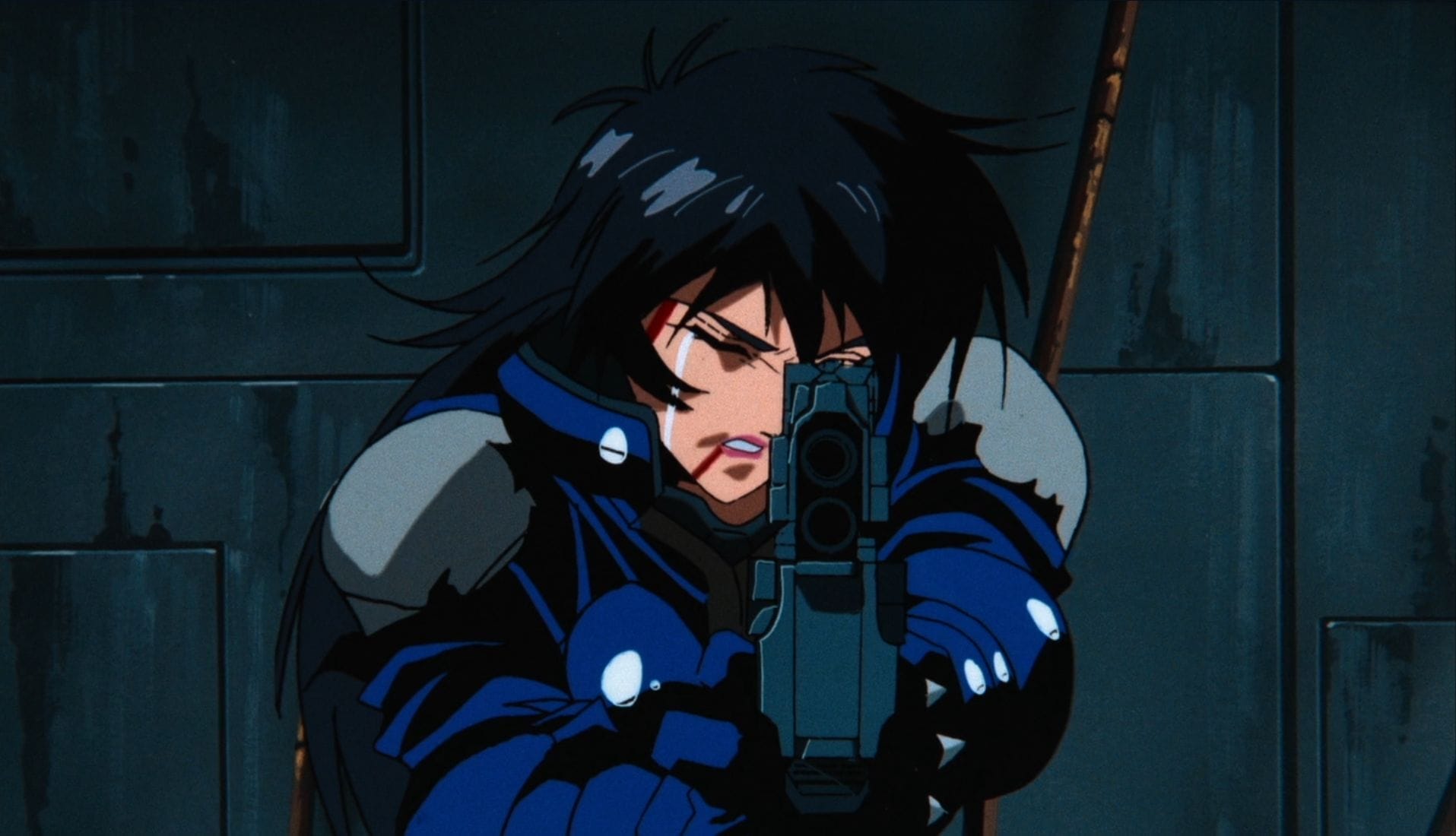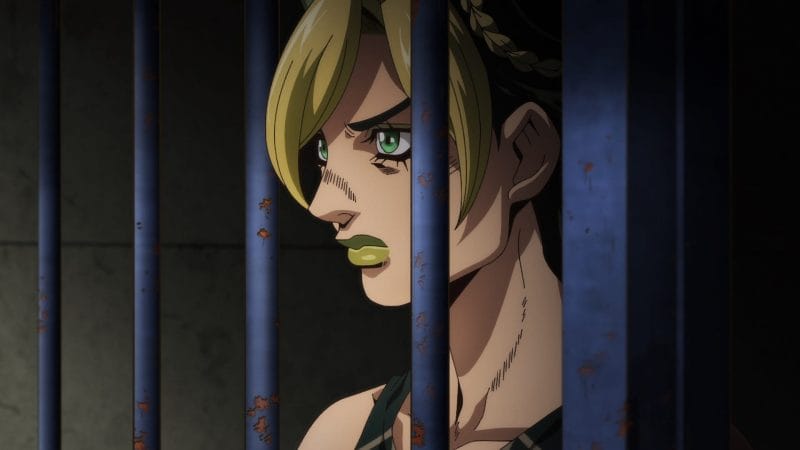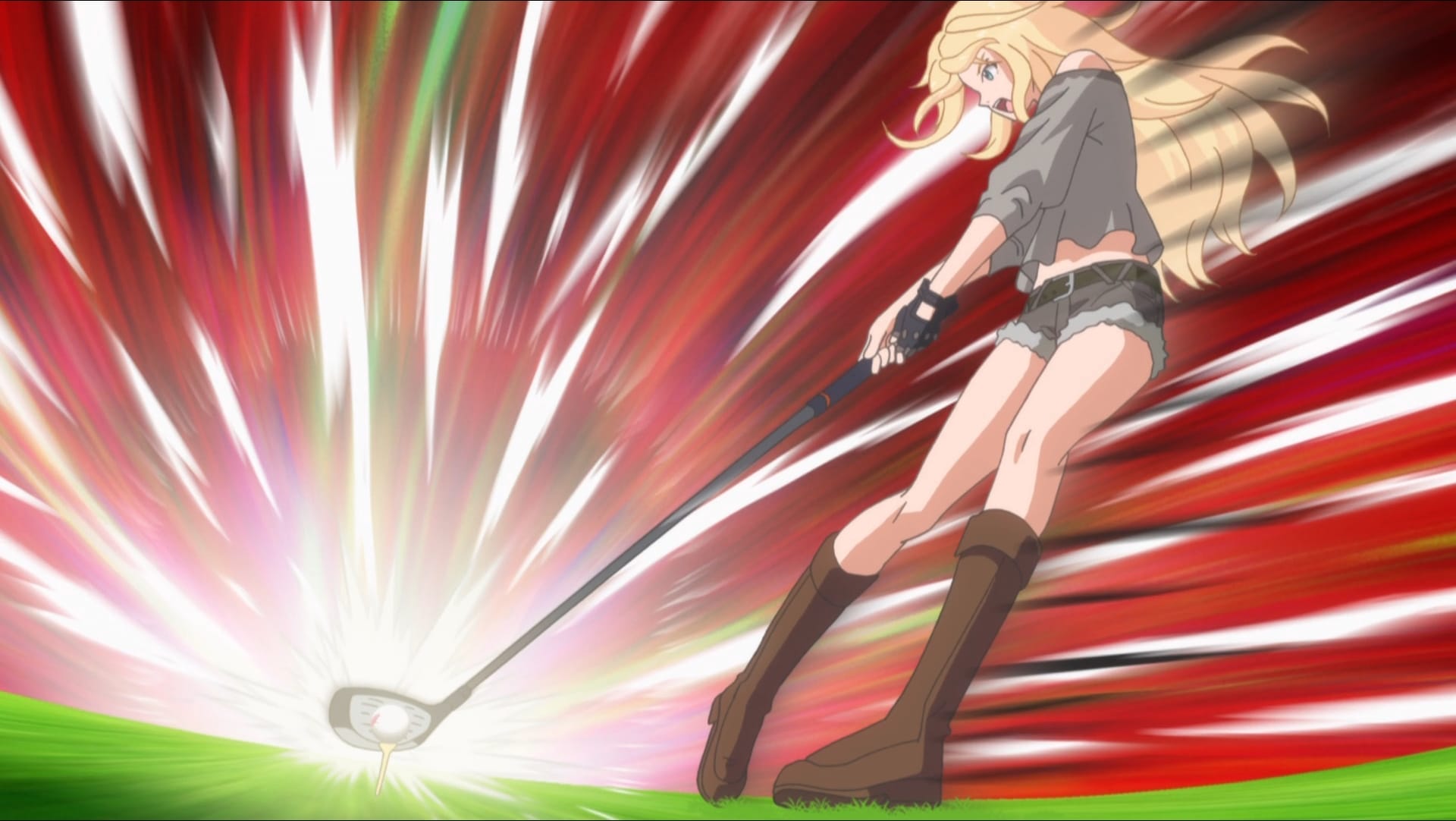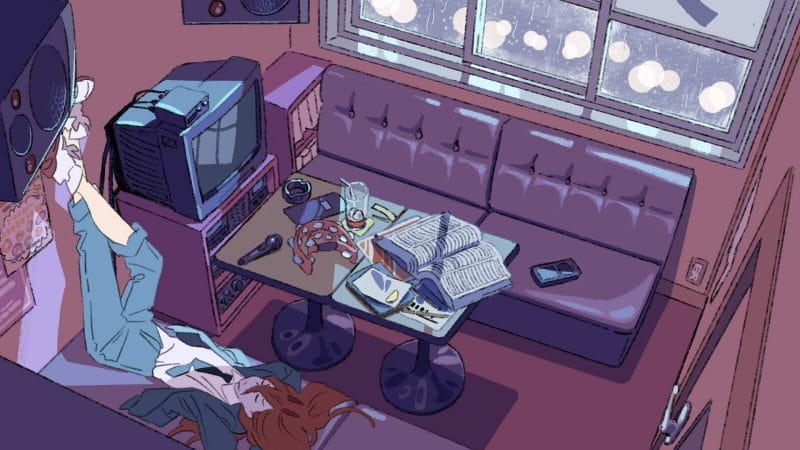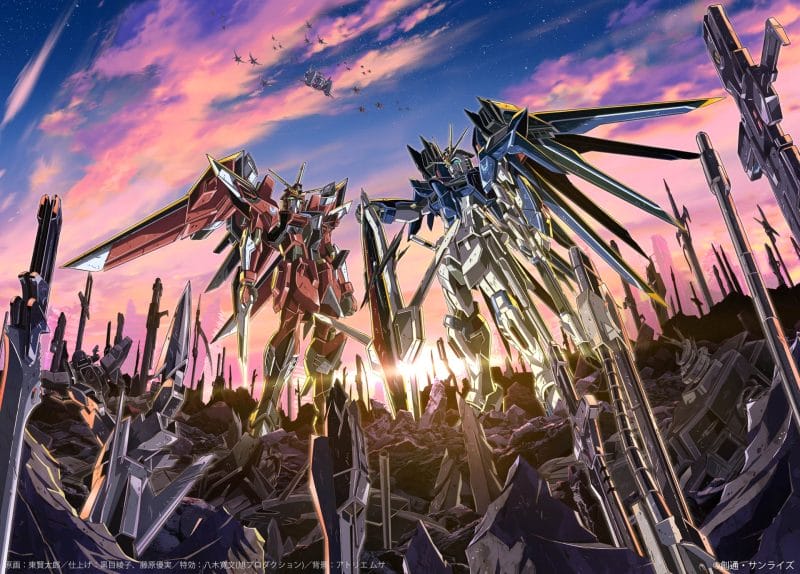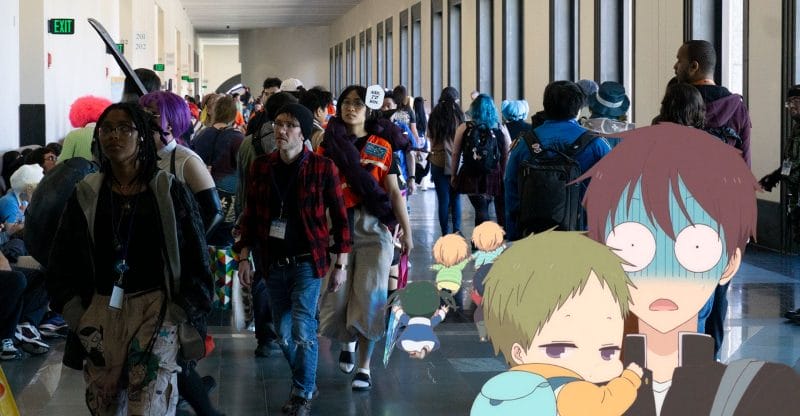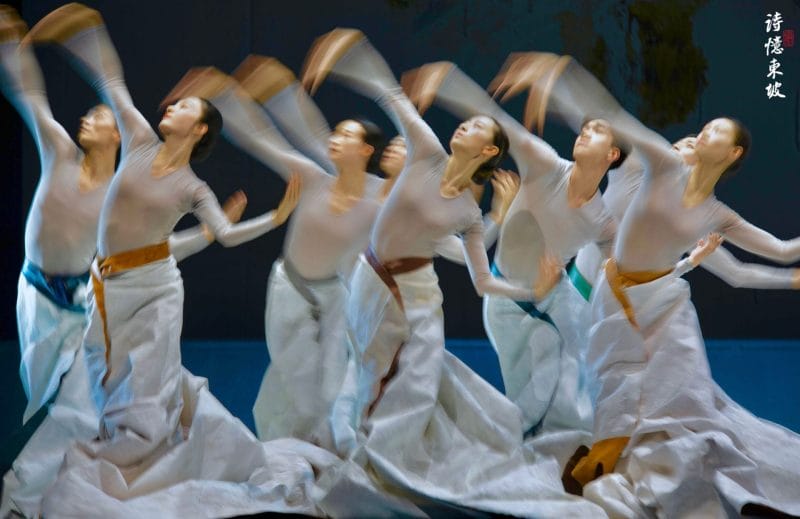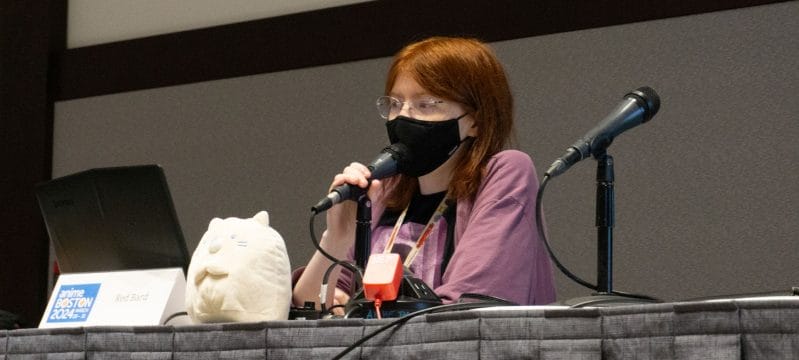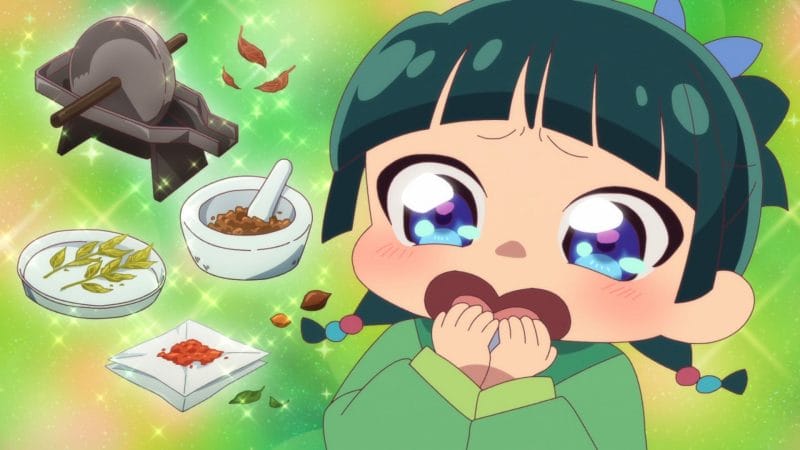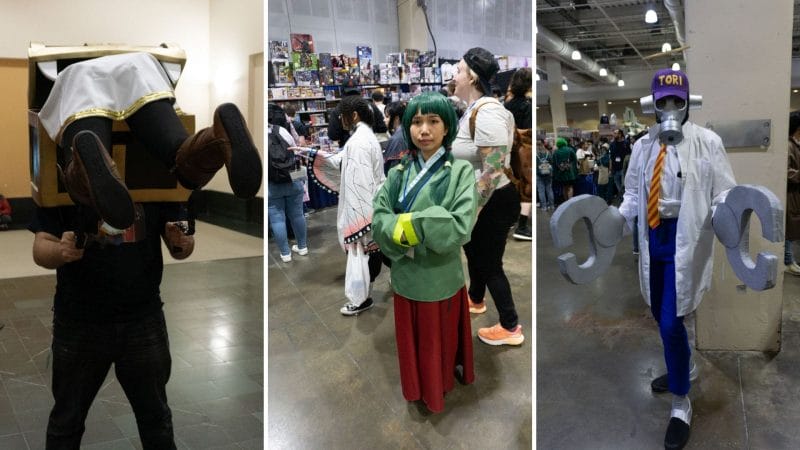Content Warning: Contains a brief description of Angel Cop‘s antisemitic elements
Table of contents
Angel Cop was first unleashed upon the English-speaking world in 1995, distributed by Manga Entertainment. It quickly gained a reputation for being a so-bad-it’s-good schlock anime, with a classic dub consisting of predominantly British voice actors doing unconvincing American accents. Like many localized anime of its time, Angel Cop was extremely violent, cyberpunk-adjacent, and explicitly adult, featuring a dub laden with colorful profanity.
The story of Angel Cop, at least as it was experienced by English speakers during the 90s, is simple at first but becomes convoluted over its runtime. Japan has turned into the world’s dominant superpower and is facing terrorist attacks from a communist organization. A group of officers called the Special Security Force is created to combat these terrorists; the dub invokes Judge Dredd when describing them – each member is judge, jury, and executioner rolled up into one. The titular Angel, a self-described “bitch,” is particularly fond of the executioner role.
Finding an Angel (Cop)
Angel Cop might be the first anime I ever saw that wasn’t Pokemon. It sounds unlikely, but it makes sense when put into perspective. As a (roughly) fourteen-year-old, I saw a user on an edgy and angst-filled message board who had an Angel Cop-related signature. I won’t say which forum it was, but it was related to Lego and I was entirely too young to be on it; strange how that can happen.
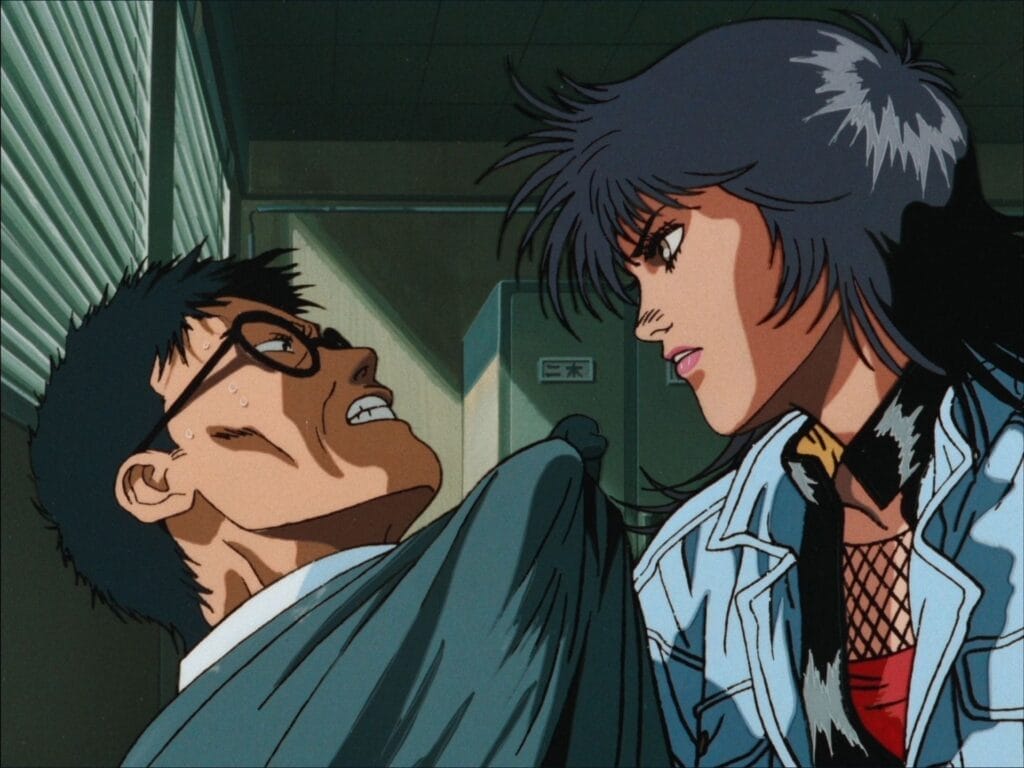
What made me take notice of this forum signature was, naturally, its leather-clad and shapely protagonist, the titular Angel. Upon investigating further and discovering the show’s notoriously excessive violence and darkly comedic dub, I did what any enterprising teenager with an internet connection would do and decided to watch it. Angel Cop became a fast favorite, and since then I’ve watched the whole thing multiple times.
I was such a huge fan of Angel Cop that I bought the Discotek Blu-Ray, the first one that used an upscale Betamax master. For a while, I rationalized that it was fine that Angel Cop had a blurry Betamax look to it, because ultimately it reflected the time-capsule nature of Angel Cop’s place in anime history, even if it meant fine detail was obliterated and backgrounds sometimes had a smeary quality. But I discarded those thoughts the moment Discotek released another Blu-Ray after the original film negative was discovered. I sighed, but eventually relented and bought that one too; at least it came in a steel book, I told myself.
Hyperviolence and Antisemitism
If you’re not familiar with Angel Cop, that detail about the Betamax master being the only known source until a few years ago may have raised an eyebrow. Angel Cop, like many of the other cherry-picked hyper violent OVA delicacies of the 80s and 90s, found a relatively large audience in English-speaking countries as it faded into obscurity in Japan. Angel Cop‘s popularity sustained as the anime enthusiasts of the 90s became the anime press of the aughts as fandom exploded.
Angel Cop’s history begins, in Japan, in 1989. It started with a multimedia push, with a single-volume manga starting publication a few months before the release of the first OVA episode. Like many notoriously bad anime, Angel Cop was created by some talented people with notable production credits. The entire anime was directed by Ichiro Itano and was written by Itano with Sho Aikawa.
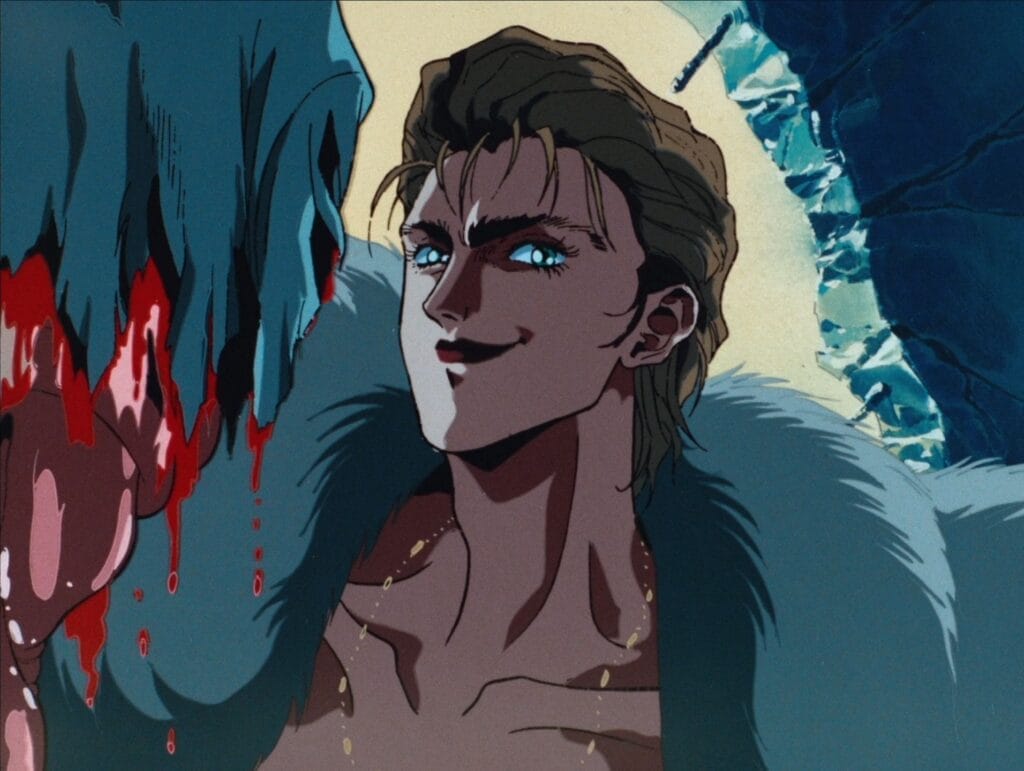
Yes, that’s the Itano who created the “Itano Circus,” utilizing the technique most famously when directing Macross movies and episodes. As we’re talking about Manga Entertainment and infamous 90s dubs here, it would probably be apt for me to mention that Itano directed an episode of the Violence Jack OVA as well. Aikawa has an equally impressive resume as a writer, with writing credits on Martian Successor Nadesico, Love Hina, and the 2003 Fullmetal Alchemist anime, among many other things. Other notable creatives rounded out Angel Cop’s production, such as Yasuomi Umetsu, director of Kite, who did animation direction and keys on the first episode.
The anime entered production during the Japanese asset price bubble, and notably ended a few years after the burst in 1994, with dwindling budgets affecting the production. There’s a hubris in the anime, dripping with unintended irony, with Japan being portrayed in its first episode as the dominant world superpower due to its economic success. In Angel Cop Japan has many enemies, but who exactly those enemies are changes depending on how one listens to the anime.
In the original Japanese script of Angel Cop, Japan’s enemies ultimately turn out to be Jewish bankers. It was a distasteful and paranoid twist, but sadly not an entirely unprecedented one to have in 80s Japan. In Kid Fenris’s brilliant analysis, which is also included as a supplemental on Discotek’s Blu-Ray releases of the series, he elaborates:
While Angel Cop’s anti-Semitic twists are rare in the pop-culture skeins of anime, they weren’t so uncommon in Japanese media of the late 1980s . . . Japan’s bustling economy led to many excesses in the 1980s, including a surfeit of conspiracy theories. The nation’s financial success sparked new rivalries with foreign nations and very real backlashes in some sectors . . . Some Japanese authors seized on this and concocted theories about international secret societies scheming to undermine Japan’s newfound prosperity, with Jews often leading the cadre . . . Japan’s busy print publishing industry and relatively small Jewish population diluted objections for a good while.
Kid Fenris
From Horrific to Humorous
For reasons that should be fairly obvious, Manga Entertainment, licensors of Angel Cop, did not want to include the overt antisemitism present in the original script. John Wolskel, the man tasked with writing the dub script, made it so that the ultimate antagonists were just Americans instead. Wolskel’s script simultaneously removed the rancid antisemitism of the original script and sent-up the ridiculous far-right anti-commie action schlock that was so pervasive in the 80s, with the ironic twist that America is the enemy. It’s hard to disagree with the recontextualization, which manages to add some dimension to what was otherwise an overly serious seinen.
There’s a not-insignificant chance you’ve seen the Angel Cop highlight reel floating around, which features classic lines such as “Fuck and piss!” and “Don’t be an idiot; anyone can see you’re totally fucked!”. In an interview with Wolskel, he says he was told by Manga Entertainment producer Laurence Guinness, “Go for it, make it as edgy as you can”.
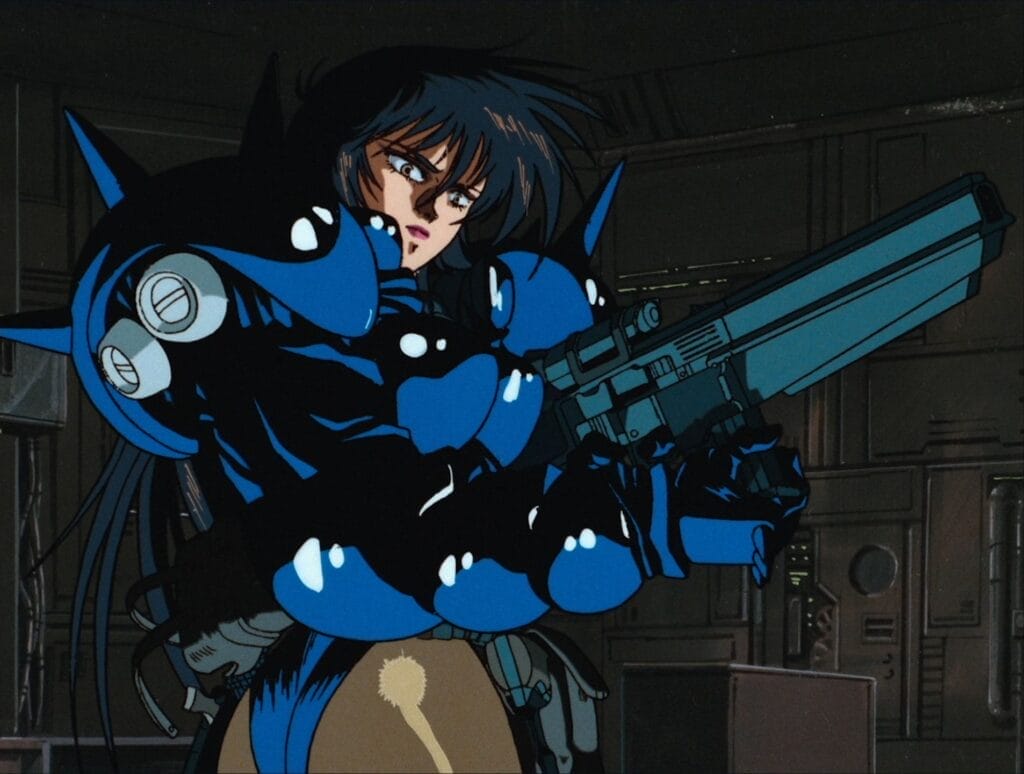
Most Western companies licensing anime in the 90s pushed the idea that anime was exclusively adult, to combat the perception that animation was only for children. Manga Entertainment could be considered the poster child of the “These aren’t your grandma’s cartoons” movement, as they released many of the most notoriously violent and vulgar anime of the era, such as Mad Bull 34 and the aforementioned Violence Jack, both of which also had scripts by Wolskel. Wolskel penned many other classics, with Angel Cop possibly not even being the most famous [infamous?] of the batch. He also wrote the scripts for Appleseed, Cyber City Oedo 808, and Space Adventure Cobra: The Movie. Angel Cop‘s dub was directed by Michael Bakewell, who also had a hand in localizing many beloved anime, such as Dominion Tank Police, Genocyber, Goku: Midnight Eye, Project A-ko, and most of the Wolskel scripts I just mentioned.
The Angel Cop dub, featuring a predominantly British cast speaking entirely in American accents, occasionally punctuates things with awkward pronunciations and overly English turns of phrase that are conspicuous and humorous in equal measure. The magical thing about the dub is that it’s both intentionally and unintentionally funny, which is an extremely uncommon yet beautiful thing.
The Pantheon of Canonical Dubs
It’s certainly valid to feel that a ridiculous dub is, to some degree, disrespectful to the original source material, especially if it’s adding an element of comedy that had never existed before. Many people view “gag dubs” the same way I view the recent trend of cinephiles watching movies on VHS; it goes against the intent of the people who created the work and, in a way, cheapens it. It’s difficult to argue with specific changes Angel Cop’s dub made, but even if the original script wasn’t antisemitic it’s difficult for me to argue with the level of parody injected into what is, for the most part, a bizarre right-wing fever dream. There’s a kind of synergy in Angel Cop’s dub that has caused it to become “canonical”, in a way that only a handful of dubs are.
“Canonical” dubs – dubs that are so highly regarded they’re usually recommended as the ideal way to experience an anime – are rare. Cowboy Bebop and Panty and Stocking are two of the best-known examples of this phenomenon. Angel Cop is also a “gag dub”, a dub that more or less parodies the original material. While Angel Cop’s dub has been well received, some gag dubs are less beloved.
Samurai Pizza Cats is another example of a highly regarded gag dub. The probably underpaid Saban localization team was given limited resources when assigned the anime, so instead of struggling to make sense of a 52-episode series, they just opted to make up jokes as they went along, largely ignoring the content of the original show. It’s still fondly remembered by the people who grew up with it.
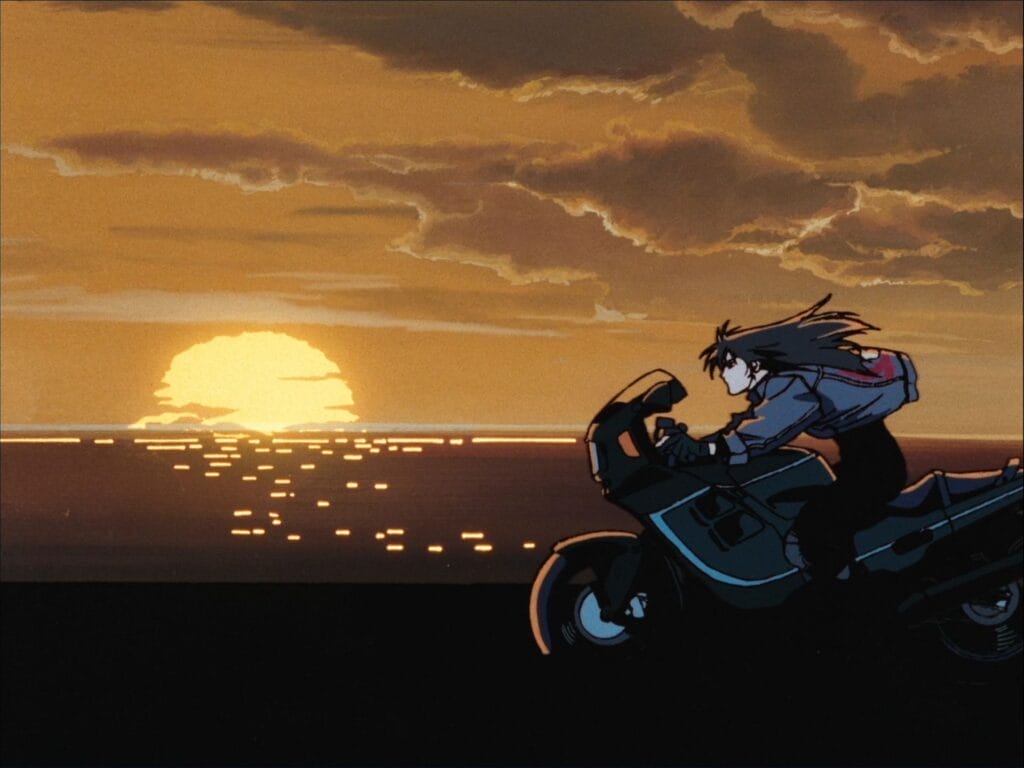
Ghost Stories, possibly the most famous gag dub ever, has a more complex legacy. Steven Foster, dub writer, and director, famously allowed the voice actors to largely improvise an incredibly profane and edgy dub for a TV series originally meant for children. The dub was a big success in its day, and the accepted wisdom for a long time was that, regardless of how one felt about the dub, the original show didn’t have much merit, not being anything special. The perception was that nothing of value had been lost, and that the show probably even deserved the ribbing. Foster claimed his dub turned Ghost Stories, an alleged bomb in Japan, into a financial success that it had never been before, a narrative that has been challenged in the years since, with some people disliking the deliberate disrespect of the gag dub.
There are certainly differences between Samurai Pizza Cats and Ghost Stories; one of them has an irreverent dub that was aimed at the same age demographic as the original show, while the other turns something that was originally innocent into something extremely edgy. But on a macro level, both of them ultimately have a lot in common when it comes to their treatment of source material, and it’s interesting how gag dubs can be well-received, or criticized.
Conclusion
I’ve said a lot about Angel Cop without touching on the non-dub elements of the show. There’s a lot to appreciate in Angel Cop beyond what’s in the highlight reel; while the anime has a memetically bad reputation, I’d argue its animation and art direction are quite good. Many of the action scenes are well-directed, maintaining a strong sense of geography that grounds things. The titular Angel is a bad bitch in a way that’s still uncommon for female characters in anime, particularly as protagonists. Unlike some OVAs, which were planned from installment to installment, Angel Cop tells a story filled with continuity and foreshadowing that seems to have been planned in its entirety before the first episode was completed.
There’s a level of competence in Angel Cop that makes it more legitimately entertaining than a lot of things considered to be so bad they’re good. The show frequently is reactionary, excessively violent, borderline nihilistic, and almost always in poor taste, which would make it difficult to stomach if it wasn’t so ridiculous and over-the-top. Angel Cop definitely isn’t for everyone, but it should be essential viewing for anyone who loves to laugh into the abyss.


